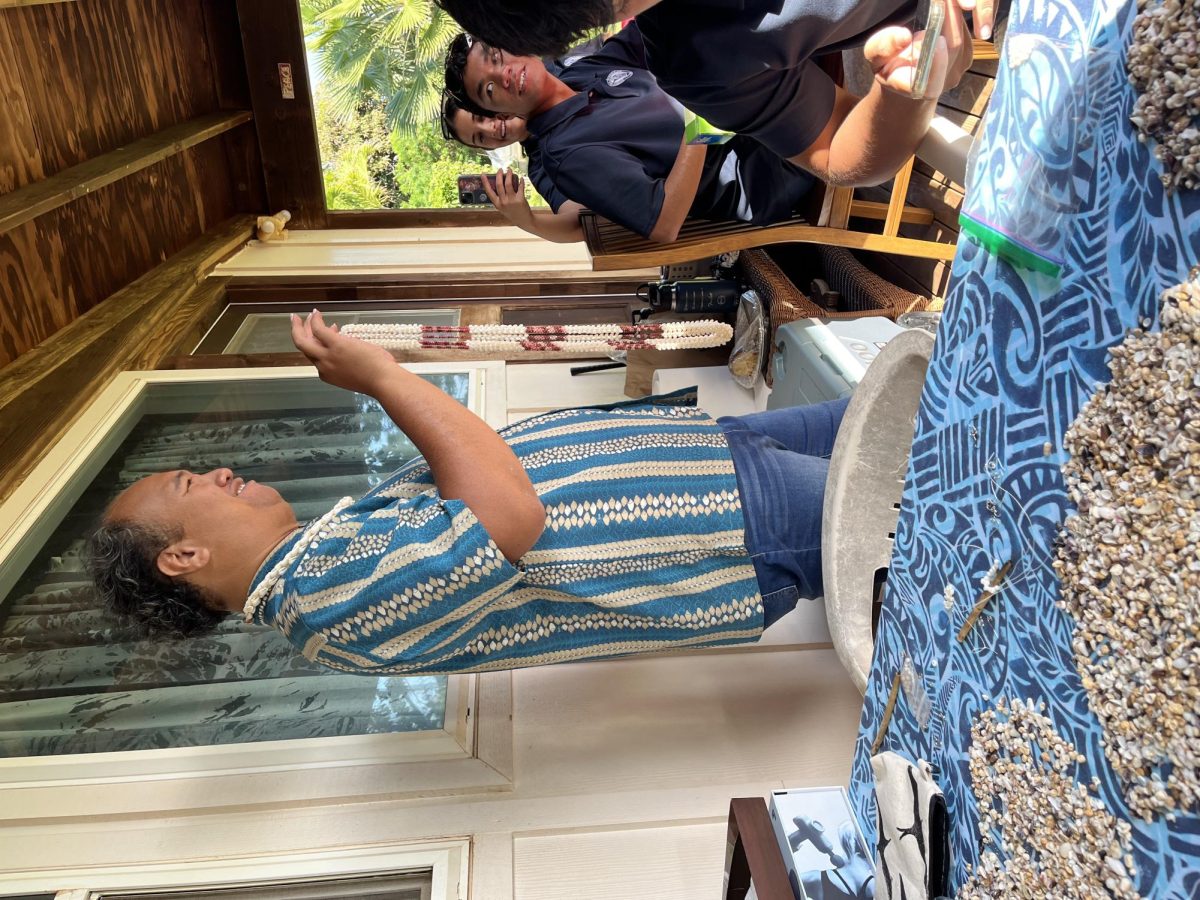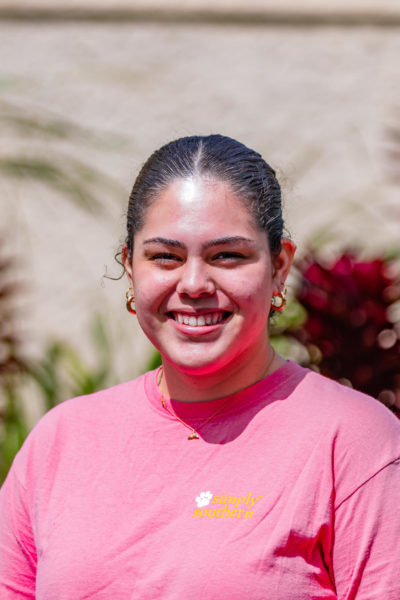This month we are celebrating Mahina ʻŌlelo Hawaiʻi, but were you aware that there is more than one way to speak ʻŌlelo Hawaiʻi?
This past month I was fortunate to travel to Kauaʻi with my Makahiki 6 ʻŌlelo Hawaiʻi class. On one of the days, we traveled out to Kekaha to learn how to learn from kānaka Niʻihau or people from Niʻihau, specifically Kaleohoʻomana Kaʻohelauliʻi, a master pūpū Niʻihau crafter.
I have been learning Hawaiian since Kindergarten, and for the first time, I found myself stunned into silence. I could not understand what ʻAnakala Kaleo was telling me.
It is not a surprise that people from Niʻihau speak differently, especially since they are separated from the rest of the islands. Niʻihau is known as the “Forbidden Island,” as tourists are not allowed to visit there. There are less than 200 residents on the island, and the primary language spoken on Niʻihau, is Hawaiian. Therefore their dialect of Hawaiian, is slightly different from how we are taught here.
The Niʻihau dialect uses “t” instead of “k.” They also tend to string together vowels and words to make continuous sounds, which often times masks the word they are saying. Additionally, they speak very very quickly, and it is quite easy to miss multiple words.
But despite the difficulty of understanding the Niʻihau dialect, it is a remarkable thing to experience. Many people from Niʻihau are manaleo, meaning Hawaiian is the first language they learned, and it is always an honor to learn anything one possibly can from them.
E ola mau ka ʻŌlelo Hawaiʻi!



